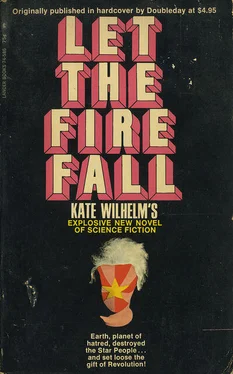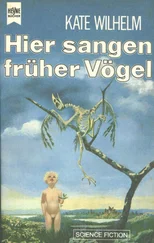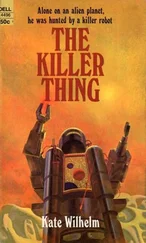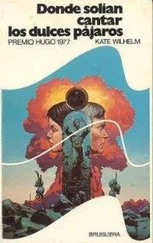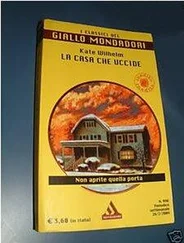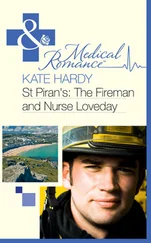Kate Wilhelm - Let the Fire Fall
Здесь есть возможность читать онлайн «Kate Wilhelm - Let the Fire Fall» весь текст электронной книги совершенно бесплатно (целиком полную версию без сокращений). В некоторых случаях можно слушать аудио, скачать через торрент в формате fb2 и присутствует краткое содержание. Город: New York, Год выпуска: 1969, Издательство: Lancer Books, Жанр: Фантастика и фэнтези, на английском языке. Описание произведения, (предисловие) а так же отзывы посетителей доступны на портале библиотеки ЛибКат.
- Название:Let the Fire Fall
- Автор:
- Издательство:Lancer Books
- Жанр:
- Год:1969
- Город:New York
- ISBN:нет данных
- Рейтинг книги:5 / 5. Голосов: 1
-
Избранное:Добавить в избранное
- Отзывы:
-
Ваша оценка:
- 100
- 1
- 2
- 3
- 4
- 5
Let the Fire Fall: краткое содержание, описание и аннотация
Предлагаем к чтению аннотацию, описание, краткое содержание или предисловие (зависит от того, что написал сам автор книги «Let the Fire Fall»). Если вы не нашли необходимую информацию о книге — напишите в комментариях, мы постараемся отыскать её.
The first man to reach the spaceship was Obie Cox. Until then Obie had been known only for the possession of one of the most beautiful male bodies in creation.
After the spaceship, Obie Cox became known throughout the world. Obie was touched by the hand of God, and that hand lay heavy on him. But he knew his duty was to carry the message placed in his hands to the world… the strong message, the truthful message… the message of hate!
Let the Fire Fall — читать онлайн бесплатно полную книгу (весь текст) целиком
Ниже представлен текст книги, разбитый по страницам. Система сохранения места последней прочитанной страницы, позволяет с удобством читать онлайн бесплатно книгу «Let the Fire Fall», без необходимости каждый раз заново искать на чём Вы остановились. Поставьте закладку, и сможете в любой момент перейти на страницу, на которой закончили чтение.
Интервал:
Закладка:
Wakeman filed his report, the first optimistic one he had written since being on this assignment, with the general board that convened monthly to discuss the Star Child, and with the report his recommendation that the school proposed for a year from that fall be started instead in the coming September, with boys of higher than planned for IQ’s.
Winifred, although no longer allowed on the estate, was still one of the board members, and was aghast at the conclusions reached by Wakeman. She bit her lip when she realized that she couldn’t state reasons for demurring, and she knew she had to try to make them stick to the planned education. Poor Johnny might be totally discouraged if he suddenly had to compete with the kind of near genius they were talking about now. She tried to visualize Johnny and Derek, Matt’s son, working on a problem together, and she shivered. It would be even worse if Johnny were exposed to someone like Blake, whose IQ no one had tested as far as she knew. Blake simply didn’t think like other people, but made staggering leaps from point to point to arrive at a conclusion that was inevitably correct. Johnny would have to plod in and out of every sentence, around every period, up and over every letter, not miss a comma or a single step or be lost before he could hope to get to that same conclusion, and to know that another had reached it within seconds or minutes when he required hours or days might send him right back to the Dick and Jane series.
She argued for another year in which to observe the maturation of the Star Child and his mental abilities, argued for a series of new tests to prove Wakeman’s claim of a startling mental leap, or disprove it. And in the end she won most of her arguments. Wakeman was to administer new tests, and if they confirmed his prediction of the sudden increase in IQ, the school would be started that same year, otherwise the plan was to remain unchanged.
Wakeman was to give the tests himself. But first he had to compromise with the Star Child. Johnny wouldn’t speak to Wakeman at all now, but communicated to him through Peter, who was treated like a court servant. Johnny had upped the ante: he was to be allowed access to the large library of the manor, no more to be offered a choice of a dozen pre-selected books. If he was not allowed this concession he would not take the tests. There was no discussion of the terms because he wouldn’t discuss them. When Peter returned from Wakeman’s office with a shrug and a muttered, “Sorry,” Johnny smiled. And said nothing. And did nothing. Absolutely nothing. The tests were brought to the room used as a school, and he refused to go there. When Wakeman threatened to have him carried, he smiled. Wakeman brought the tests to his room and Johnny turned his back and stared out the window, and whistled softly. An early nurse had taught him how to whistle and it was one of the very few things he could do better than most others, and he whistled when Wakeman tried to reason with him about. the tests. Finally Wakeman gave in and asked specifically what he wanted and Johnny said access to the library.
“You can’t read most of the books in there,” Wakeman said. “They’re for adults. You wouldn’t understand them.” Secretly he exulted. This was brand new. It buoyed his hopes about Johnny’s maturation process.
Johnny said, “I want to be able to read what I want to read, and I want to be allowed upstairs when I want to go up, by myself.” The library was on the second floor.
Wakeman gave in finally and the tests were given, and Johnny’s IQ registered at a 105 to 115 range. Wakeman accused him, through Peter, of cheating. Johnny simply looked at Peter when he brought up the results and Wakeman’s accusation. After a while Johnny said, “Maybe they don’t know how to test my IQ, or anything else.”
Peter Wyett was not an evil young man, nor was he terribly ambitious, no more so than the average Harvard graduate, holder of a Phi Beta Kappa ring, on the Dean’s list for three years, with impecunious relatives who had good addresses and good marriages and good names in academic circles. Peter Wyett, son of a university president, nephew of three university presidents and one dean of law school, unmarried at twenty-seven, with a doctorate in psychology and a future as a department head, then a dean, then probably a president of a university, had decided that it was time to break the system. He had gone to the C.I.A. with hat in hand and asked for a job. He had gotten the Star Child as his first assignment. From boredom to boredom. Dreaming of adventures in foreign ports with lovely girls flanking him, he had found instead one skinny boy, not too bright, bad-tempered, spoiled, pampered, tormented, and frightened. That had been the first surprise of the assignment. The second surprise was that everyone was afraid of the Star Child. A skinny snot-nosed kid. Not of what he was now, of course, but what he could become, and what his people would do when they returned. Faced with this problem Peter would have voted to have the kid done away with a long time ago, when they had the opportunity; during the open heart surgery on the blue infant they should have squeezed one of the tiny vessels shut for a couple of minutes, then off with the gloves and masks, tsk, tsk, and on to something else. That’s how it should have been handled, but having kept him alive then, they had to continue to keep him alive, and healthy, and reasonably happy. Of course, they failed in each department except the first, and there might be some question about that depending on who was asked. They watched him and tested him and examined him and probed into his mind and tried to see into his soul and they were afraid of him and what he might tell his people, and what he might do if he began to develop powers.
“Of course, he is human. As human as you are, or as I am, so how can he suddenly get ‘powers’? That’s Sunday supplement junk. No one seriously believes stuff like that.” So they said, but they believed it all right, and if one of them caught Johnny staring at him, he became cold and had pains that hadn’t been there moments earlier. Headaches developed over nothing more than looking up to find those pale eyes locked in a stare at a person’s head. Wakeman got those awful stomach aches over finding the kid staring at his stomach. One of the F.B.I. nurses had developed such a rash that she had been medically discharged and turned loose to scratch. No one knew when the first such case had been laid to Johnny; the first to appear in the official reports had been when he was seven, and it had been dismissed as irrelevant and ridiculous. One of the male nurses had struggled to undress Johnny for a physical examination and later had needed emergency surgery for appendicitis, peritonitis, and a hernia, none of which could have been brought on by a frail child, They seldom reported other suspicious illnesses and accidents officially, but everyone in the estate knew. Except possibly Johnny.
So when Johnny said innocently, “Maybe they don’t know how to test my IQ, or anything else,” Peter Wyett heard it echo through his head most of the night. He didn’t report it immediately. He thought about it. He decided that Johnny had hit it dead center. They didn’t know how to test him, what to look for, how to measure it if they found it. Whatever it might turn out to be. His people had come across space, light-years, in a craft that still defied all attempts to unravel its secrets. They had gadgets and machinery and equipment the use of which was guessed at, disputed, guessed at again, argued about, and so on, daily by the world’s most renowned scientists of every country. No one had been able to decipher their language. They couldn’t operate the tape recorders or the computers aboard, and couldn’t play the tapes on any Earth equipment; in fact, they weren’t even certain that what they had found should be called tapes. They hadn’t been able to duplicate the metal of the ship. Someone had said, facetiously perhaps, that in a vacuum at absolute zero, with one million pounds of pressure, perhaps they could turn out such an alloy. Peter didn’t know anything about metallurgy; he knew that he wouldn’t know how to go about turning a hunk of iron ore into finished steel, and he was an intelligent man, so it didn’t surprise him that no one had solved the ship’s puzzles yet. It didn’t surprise him that the Star Child should test low on tests made for standards that were questioned here on Earth. Who knew what they were measuring?
Читать дальшеИнтервал:
Закладка:
Похожие книги на «Let the Fire Fall»
Представляем Вашему вниманию похожие книги на «Let the Fire Fall» списком для выбора. Мы отобрали схожую по названию и смыслу литературу в надежде предоставить читателям больше вариантов отыскать новые, интересные, ещё непрочитанные произведения.
Обсуждение, отзывы о книге «Let the Fire Fall» и просто собственные мнения читателей. Оставьте ваши комментарии, напишите, что Вы думаете о произведении, его смысле или главных героях. Укажите что конкретно понравилось, а что нет, и почему Вы так считаете.
